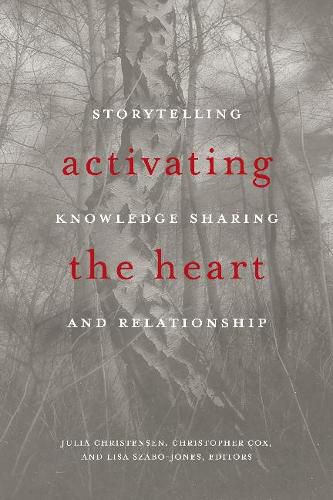Readings Newsletter
Become a Readings Member to make your shopping experience even easier.
Sign in or sign up for free!
You’re not far away from qualifying for FREE standard shipping within Australia
You’ve qualified for FREE standard shipping within Australia
The cart is loading…






This is an exploration of storytelling as a tool for knowledge production and sharing to build new connections between people and their histories, environments, and cultural geographies. The collection pays particular attention to the significance of storytelling in Indigenous knowledge frameworks and extends into other ways of knowing in works where scholars have embraced narrative and story as a part of their research approach. In the first section, Storytelling to Understand, authors draw on both theoretical and empirical work to examine storytelling as a way of knowing. In the second section authors demonstrate the power of stories to share knowledge and convey significant lessons, as well as to engage different audiences in knowledge exchange. The third section contains three poems and a short story that engage with storytelling as a means to produce or create knowledge, particularly through explorations of relationship to place. The result is an interdisciplinary and cross-cultural dialogue that yields important insights in terms of qualitative research methods, language and literacy, policy-making, humanenvironment relationships, and healing. This book is intended for scholars, artists, activists, policymakers, and practitioners who are interested in storytelling as a method for teaching, cross-cultural understanding, community engagement, and knowledge exchange.
$9.00 standard shipping within Australia
FREE standard shipping within Australia for orders over $100.00
Express & International shipping calculated at checkout
This is an exploration of storytelling as a tool for knowledge production and sharing to build new connections between people and their histories, environments, and cultural geographies. The collection pays particular attention to the significance of storytelling in Indigenous knowledge frameworks and extends into other ways of knowing in works where scholars have embraced narrative and story as a part of their research approach. In the first section, Storytelling to Understand, authors draw on both theoretical and empirical work to examine storytelling as a way of knowing. In the second section authors demonstrate the power of stories to share knowledge and convey significant lessons, as well as to engage different audiences in knowledge exchange. The third section contains three poems and a short story that engage with storytelling as a means to produce or create knowledge, particularly through explorations of relationship to place. The result is an interdisciplinary and cross-cultural dialogue that yields important insights in terms of qualitative research methods, language and literacy, policy-making, humanenvironment relationships, and healing. This book is intended for scholars, artists, activists, policymakers, and practitioners who are interested in storytelling as a method for teaching, cross-cultural understanding, community engagement, and knowledge exchange.